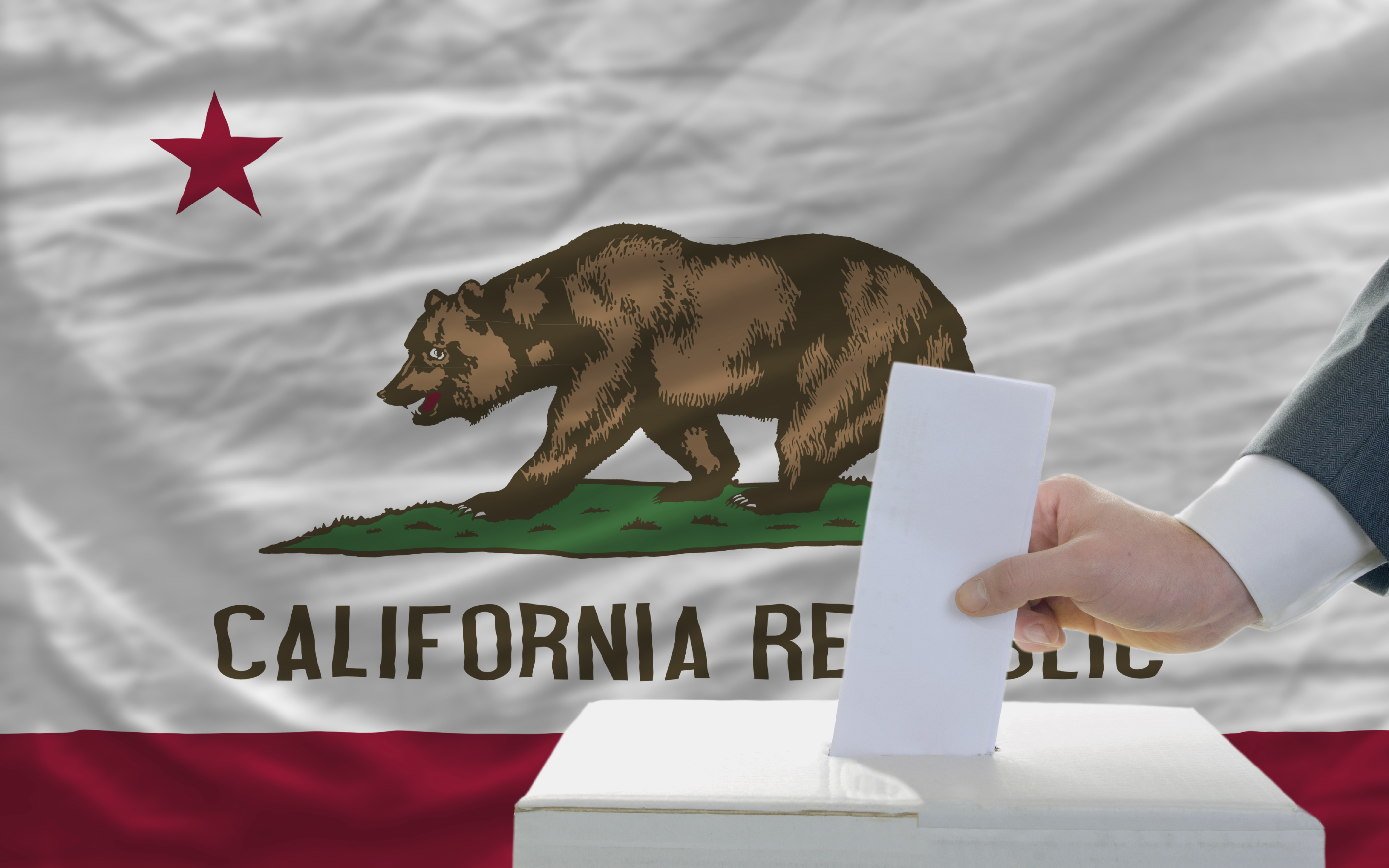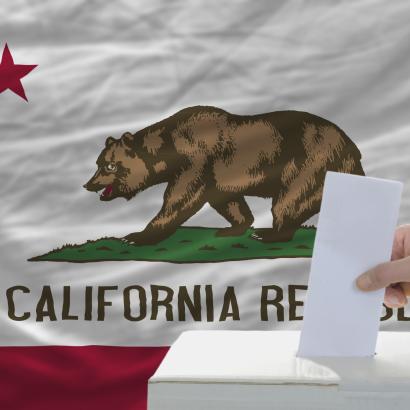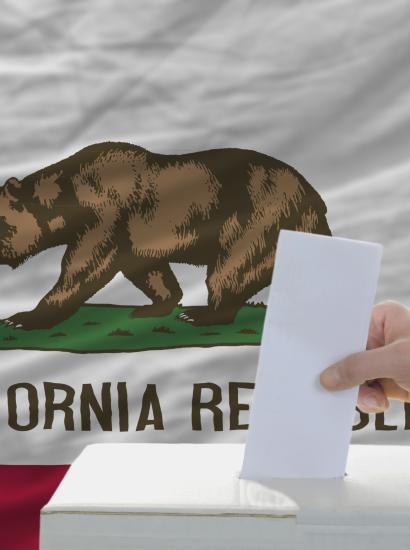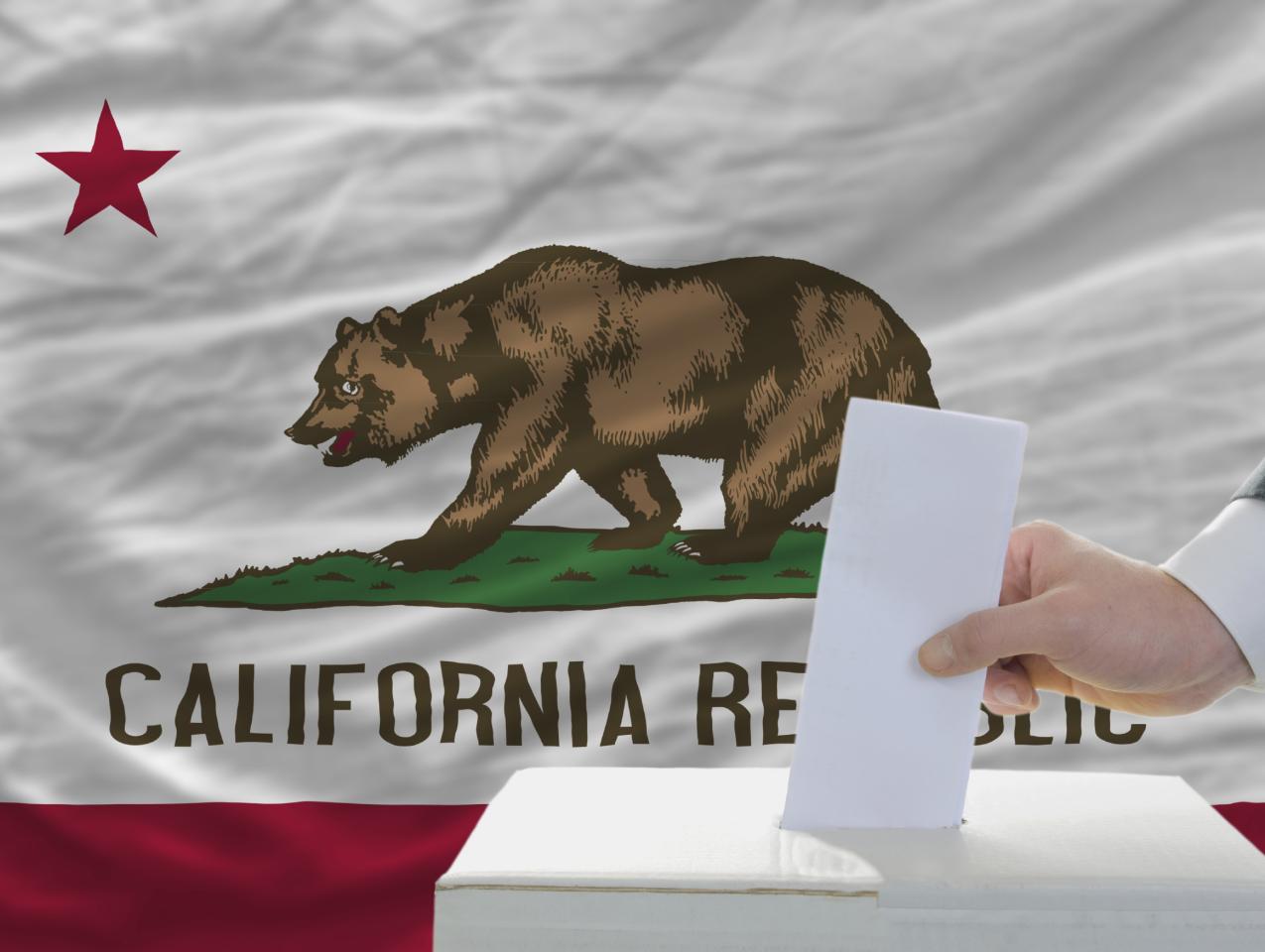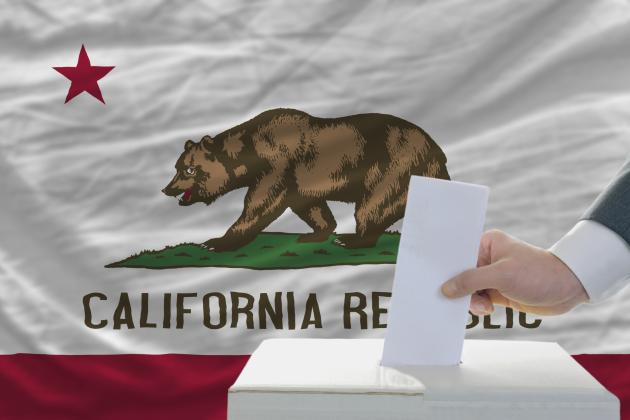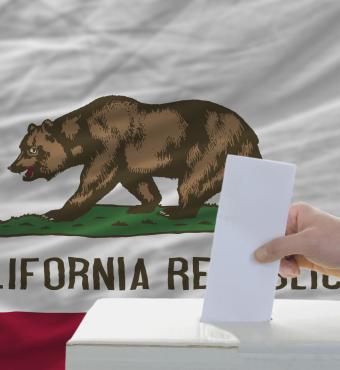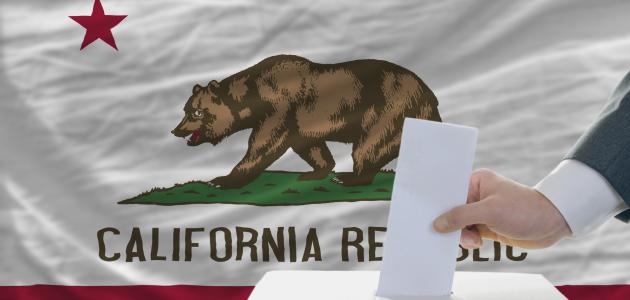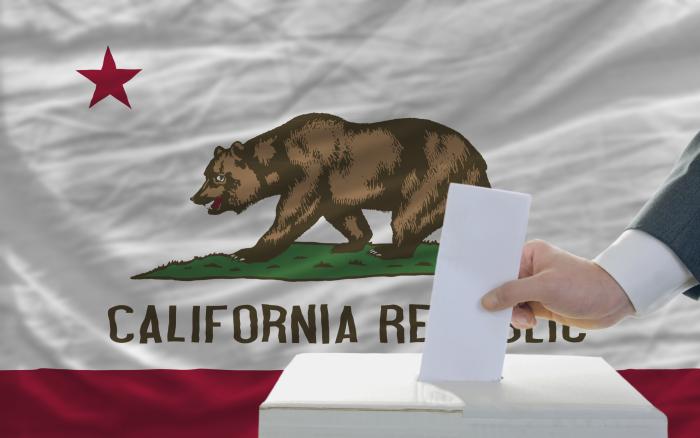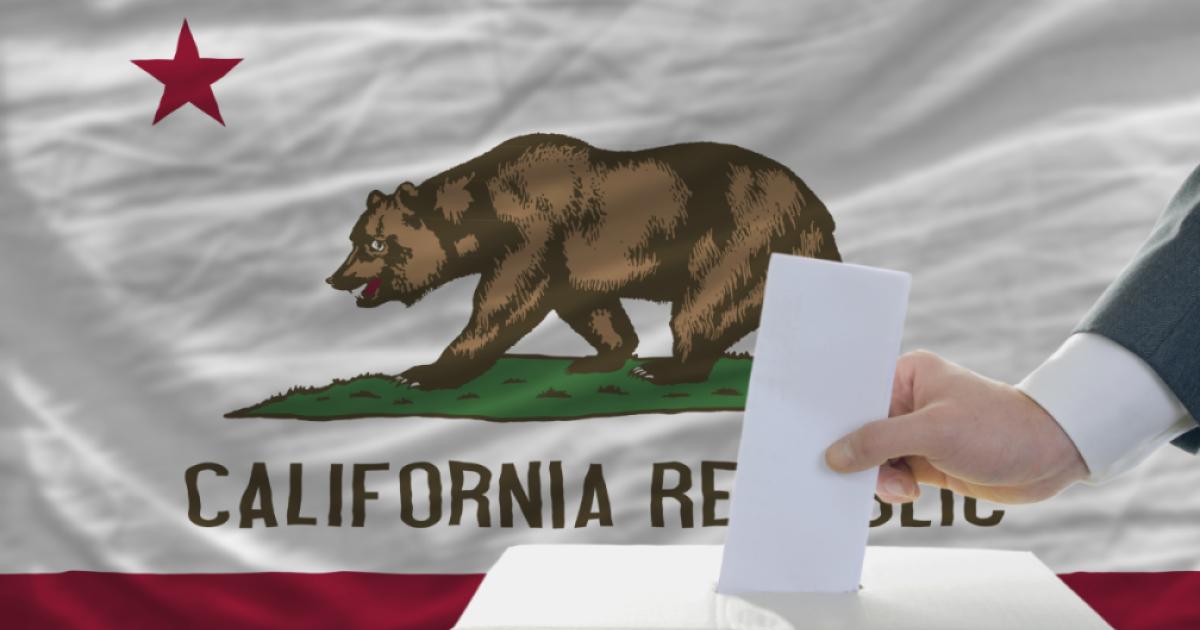- State & Local
- California
For a state that brags about its clean air (remember that the next time you gas up your vehicle), the Golden State gives a hazy impression of its political landscape to the outside world.
Case in point: New York magazine looking at San Francisco on the eve of the city/county’s being poised to recall its district attorney and concluding that the famously liberal “city by the bay” isn’t as progressive as it should be because Republicans ruled the roost decades ago.
You read that right. San Francisco, a community in which Democrats outnumber Republicans by a 9-to-1 margin, doesn’t live up to its progressive potential because Republicans running the city during FDR’s years denied the locals the full New Deal experience (a serious misreading of history, as Angelo Rossi, San Francisco’s GOP mayor from 1931 to 1944, was an ardent supporter of the New Deal’s Works Progress Administration).
Second case in point: on the morning of Tuesday’s primary in California, a screaming Drudge Report headline: “LA, San Fran Turn Right, Political Earthquake.”
About that seismic disturbance: don’t buy into the hype.
Yes, Tuesday was a good night, in California’s two highest-profile metropolises, for two candidates/causes that made a return to stricter law enforcement the centerpiece of their respective messages (more on both in a moment). But once the votes are counted in the Golden State (a laborious task thanks in part to mail-in ballots pouring in days after the polls close), here’s the unpleasant reality facing a disgruntled electorate: it’s still a state dominated by one party with an insatiable lust for progressive social engineering and unwieldy big-government solutions—a state in which conservatives have few options to halt the leftward drift other than lawsuits, ballot referenda, and the occasional recall effort.
Here are three takeaways from Tuesday’s vote in California:
Chesa Chased Out. Let’s start with the national news—San Francisco voters recalling district attorney Chesa Boudin from office, the second time in less than four months that SF’s progressive electorate has ousted incumbents for placing woke ideology ahead of pragmatic decision making.
In retrospect, the writing was on the wall for Boudin long before recall signatures were gathered or ballots were cast. In 2019, the last time San Franciscans chose a district attorney, the city’s political establishment—that would be governor Gavin Newsom (a former SF mayor), US senator Dianne Feinstein (also a former mayor), future vice president Kamala Harris (herself a former SF DA) and current mayor London Breed—all sided with Suzy Loftus, the interim district attorney at the time and a moderate alternative to Boudin. Boudin’s most prominent backer: Vermont senator Bernie Sanders.
Breed didn’t help Boudin’s cause last December by reversing course and shifting from wanting to defund law enforcement to declaring a state of emergency in crime-infested neighborhoods and advocating a tougher stance on crime and punishment (in the mayor’s words: “It’s time the reign of criminals who are destroying our city, it is time for it to come to an end. And it comes to an end when we take the steps to be more aggressive with law enforcement. More aggressive with the changes in our policies and less tolerant of all the bulls--- that has destroyed our city.”).
Boudin dismissed the recall campaign as a Republican cabal (the same spin worked for Newsom in surviving last fall’s gubernatorial recall election) and cherry-picked local crime statistics in a last-ditch attempt to put his record in a more positive light. The problem with that approach: numbers don’t matter so much when voters don’t feel safe or secure.
What comes next: Breed will appoint an interim district attorney—presumably, one who’s less a social justice warrior than Boudin, who was a public defender who’d never prosecuted a case prior to taking over as San Francisco’s “top cop.”
That, and discovering whether there will be a carryover effect in Los Angeles, where an effort to recall that county’s district attorney, George Gascon (ironically, a former San Francisco DA), is under way.
Speaking of California’s largest city . . .
Caruso’s Tenor. That Rep. Karen Bass and billionaire developer Rick Caruso made the November runoff in the race to decide Los Angeles’s next mayor isn’t a surprise: she’s a high-profile member of Congress (reportedly, once on Joe Biden’s vice presidential short list); he spent $40 million on a media blitz in the weeks leading up to Tuesday’s nonpartisan primary.
Bass’s path to November is predictable: tapping into the local Democratic machine that’s produced three LA mayors this century.
But Caruso is also a Democrat—well, kinda, sorta, having changed partisan affiliation shortly before entering the race (he was a Republican three years ago, before re-registering as an independent).
And that’s just the beginning of what shapes as an unconventional campaign by LA standards.
For openers, Caruso has earned the backing of Elon Musk, Snoop Dogg, Gwyneth Paltrow, and Kim Kardashian. His campaign believes it will make inroads into the Black community, despite Bass being one of the Southland’s most prominent African American politicians. One April survey showed Caruso leading Bass among Latino voters.
With five months until the general election, Caruso’s team faces a strategic choice: wager on the unusual (a wealthy White businessman able to compete with a Black woman for nonmale, minority voters), or turn the 2022 race into a repeat of Los Angeles’s 1993 mayoral race. In that election, Republican businessman Richard Riordan bested his Democratic rival by eight points after turning the contest into a referendum on crime (Riordan called for hiring more police officers, as has Caruso) and hunting for votes in the more conservative San Fernando Valley, where Los Angeles’s political elite are held in deep contempt.
My Independents Seem to Vanish in the Haze. For a decade now, California’s primary has allowed the top-two finishers to advance to the general election regardless of party affiliation. The question, when this “open” or “jungle” approach was first implemented: would a non-Democrat or non-Republican—in California election parlance, “no party preference”—manage to finish better than third place?
Tuesday’s vote was a reminder that political independents continue to live an alien existence in California. Michael Shellenberger, the San Fransicko author and homeless policy maven hoping to make the cut in the governor’s race, was a distant third despite the benefit of some high-profile media hits (Fox News, Bill Maher’s HBO show, and Joe Rogan’s podcast). Anne Marie Schubert, Sacramento County’s district attorney—and, like Shellenberger, running as a nonpartisan—finished a very distant fourth in her race.
Why wasn’t there a breakthrough this time around? Lacking a party apparatus to tap into, independent candidates are more reliant upon cash up front for media and get-out-the-vote operations. In California, that speaks to personal wealth and high name recognition—Arnold Schwarzenegger being arguably the only candidate in the brave new world of open primaries perhaps capable of winning a statewide office without the backing of a major political party.
Speaking of a party, Gov. Newsom didn’t bother to have one on election night as he readied for President Biden’s visit to California. It’s now been 80 years since a first-term California governor lost a re-election bid. Newsom seems in little danger of ending that historical run, having drawn a farmer and low-profile state senator from an 11-county expanse of rural California as his November opponent.
California’s governor having to sweat out a re-election? That would be an earthquake.







